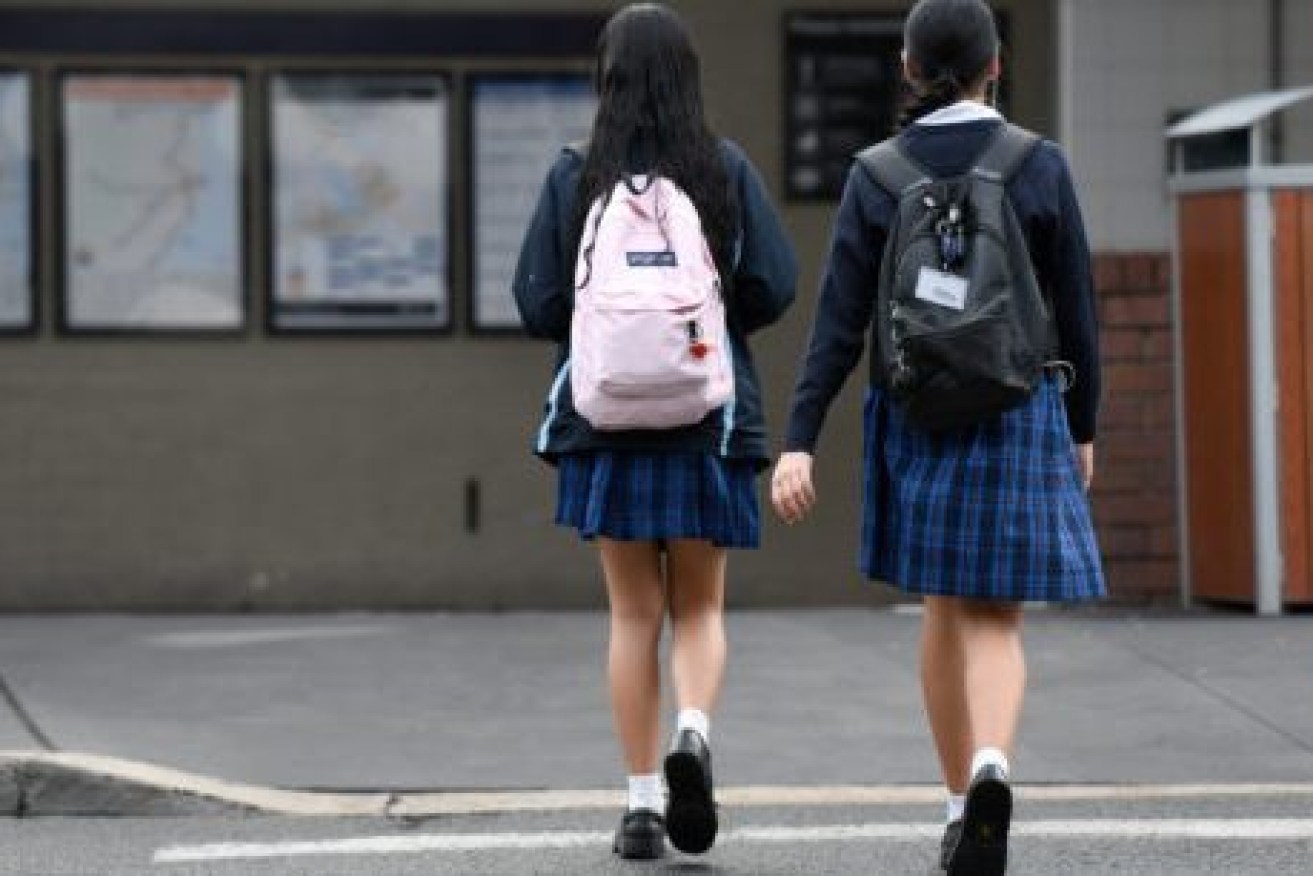‘School refusal’: How post-pandemic scourge is making our children too frightened for classes
It might be a pandemic hangover, a Tik Tok craze or something even more obscure, but something strange is happening to our school-aged children, writes Madonna King.


A Victorian private boys' school has expelled students involved in a game where female students are 'rated' by male students. (AAP Image/Bianca De Marchi)
A national inquiry is underway into an insidious trend, now engulfing primary schools, where children as young as eight years old are refusing to attend school.
Outside the school community of educators and parents, little is known and understood about ‘School Refusal’, or ‘School Can’t’, which has become a lasting legacy of the COVID19 pandemic.
Now, in schools across the nation, it is being dealt with daily. Students in year 3 so distressed that they cannot leave the car in school drop-off zones. Students, slightly older, unable to deal with a school day full of noise and assessments and peers; their anxiety meaning they simply refuse to attend.
And students in their final years of high school, many of whom should be sitting their final exams this week, but who have not walked back into class since remote learning ended.
Educators label it a new challenge that needs to be dealt with, urgently. School counsellors are keen to point out that this is not truancy; it is an inability of a child to walk through the school gates because of a mental health challenge.
And families – in public and private schools, co-ed and single sex schools – are lost; some unable to attend work because their young child’s emotional distress prohibits them attending school.
“I can’t even apply for a new job,’’ one mother explained. She doesn’t know if she will be calling in every second day, unable to attend, because of the need to be with her child.
“It’s a problem everywhere,’’ one school principal whose child is suffering school refusal said. She said she would never have imagined, before the pandemic, that it would have enveloped her gregarious, clever teenager.
The causes of School Refusal are varied – from separating parents to a change in schooling (from primary to secondary, for example), bullying and the impact of COVID19.
But that is why this inquiry, announced this week, is so crucial. Run by the Senate Education and Employment References Committee, it is charged with probing “the national trend’’ of school refusal.
And already its terms of reference point to the significance of what it might find, in navigating a way forward.
The terms of reference are broad, but look at “the increasing number since the COVID-19 pandemic’’, how it is affecting both students and their families – and what that might mean to the employment and financial security of their parents.
But the impact of school refusal goes further. As the terms of reference note, it is also now placing an “increasing case load on service providers and schools’’.
Five years ago, school principals saw the odd case of school refusal, and in many cases, it was simply labelled ‘truancy’.
But they are clearly two separate issues. Indeed, a child who refuses to attend school might even want to attend class. They simply can’t.
Like the spike in eating disorders, it points to another mental health challenge, magnified by COVID19.
Statistics show that almost one in every seven children aged between four and 17 suffer a mental health disorder. That adds up to almost 600,000 Australian children.
What’s the impact of that on our national future? And what’s the impact of that on their own futures?
It’s easy to drop the masks and the mandates. The legacy left by COVID requires a much bigger strategy.
In a perfect world, we’d add to the handful of royal commissions being held now with a single national inquiry into the mental health of our children. Surely 600,000 children, and their families, deserve that?
But in the meantime, this Senate inquiry is worth all of our support. And if it has any chance of making a difference to the lives of those children who won’t be attending class today or tomorrow or next week, it needs to listen to those who understand this issue.
School principals have a wealth of knowledge, but are rarely asked for their advice. School counsellors have a queue of students outside their office, desperate for a word with someone. Private psychologists, whose books are full for a year, know the heartache in the emotional distress of being unable to attend school.
The inquiry will report on March 22 next year. Mark it in your diary; it’s only a small step, but done right, this could be a blue print that changes the lives of children living in country and city areas, in every state of Australia.
And that’s the COVID legacy we need.












